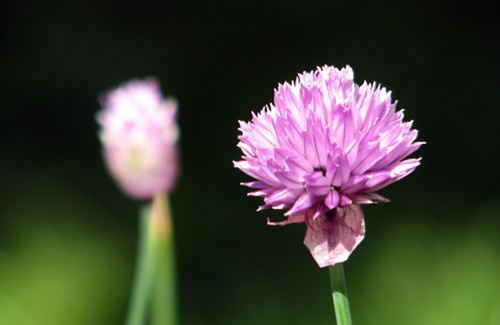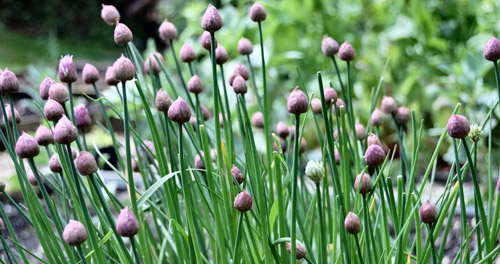
It’s Monday morning again and I’ve got another lesson on toxic plants to help make the workday move a little faster. Today we’ll take a look at the wonderfully aromatic & delicate little Chives.
A Little About Chives
Allium schoenoprasum is the Chive, this plant grows in clumps with slender, hollow leaves, firm, smooth stems and purple or pink globe shaped flowers.
How Dangerous Is It?
Believe it or not, this is one plant that people eat daily but which is really bad for your horse. They aren’t especially palatable to horses, however they are dangerous enough to actively keep your mount away from them. Chives contain a toxic compound which damages red blood cells.
All parts of the Chive plant are toxic to equines.

What To Look For
You know your animal the best, so you should know when something is amiss. Chive toxicity symptoms can include weakness, light colored gums – causes anemia and thins blood. Often a slow loss of blood from a secondary (& unrelated) wound is what actually creates the symptoms.
Learn More
Be sure to check out the Chives page to learn more about the plant and while you are at it why not check out more toxic plants?
*It should be noted that I’m not a veterinarian. This information is written specifically for horses and should be used for reference purposes only. If you think your horse has eaten something toxic call your vet right away.
